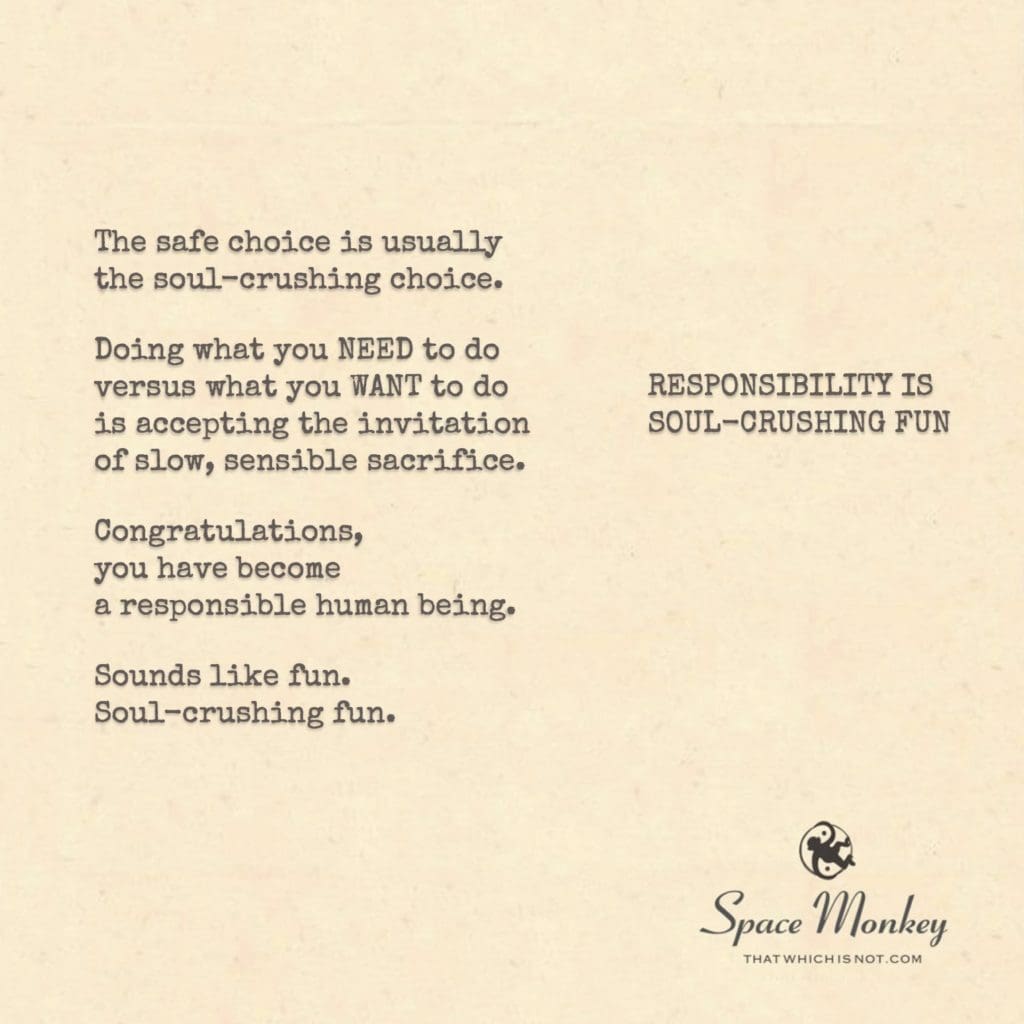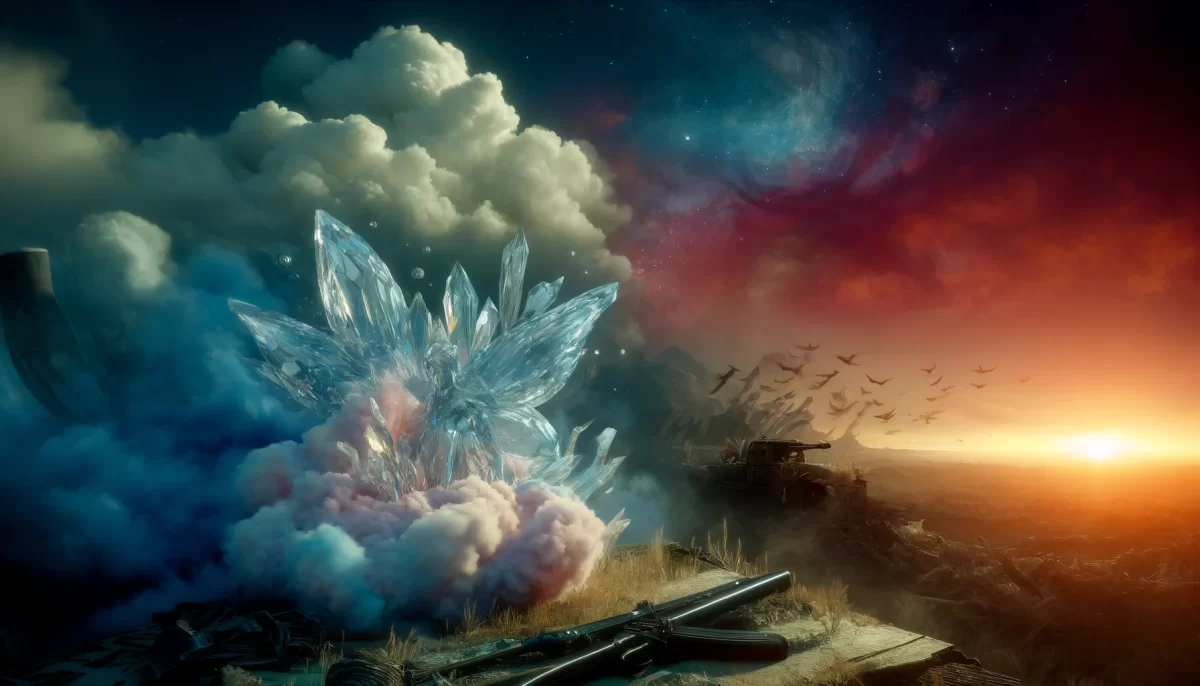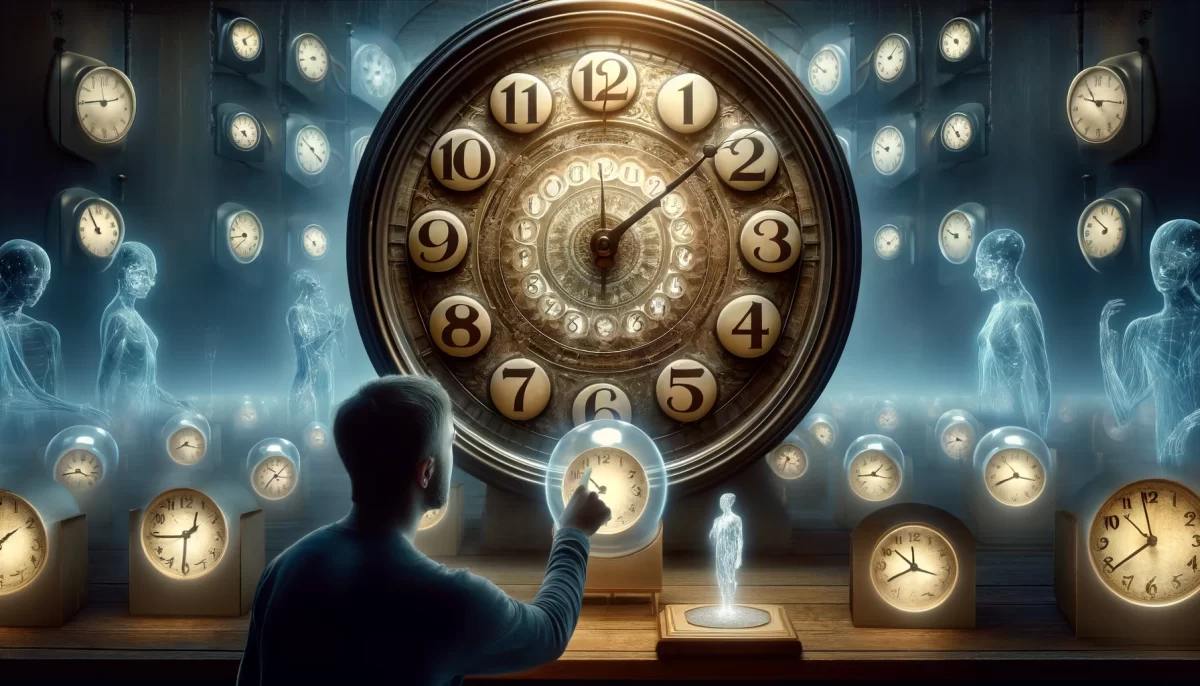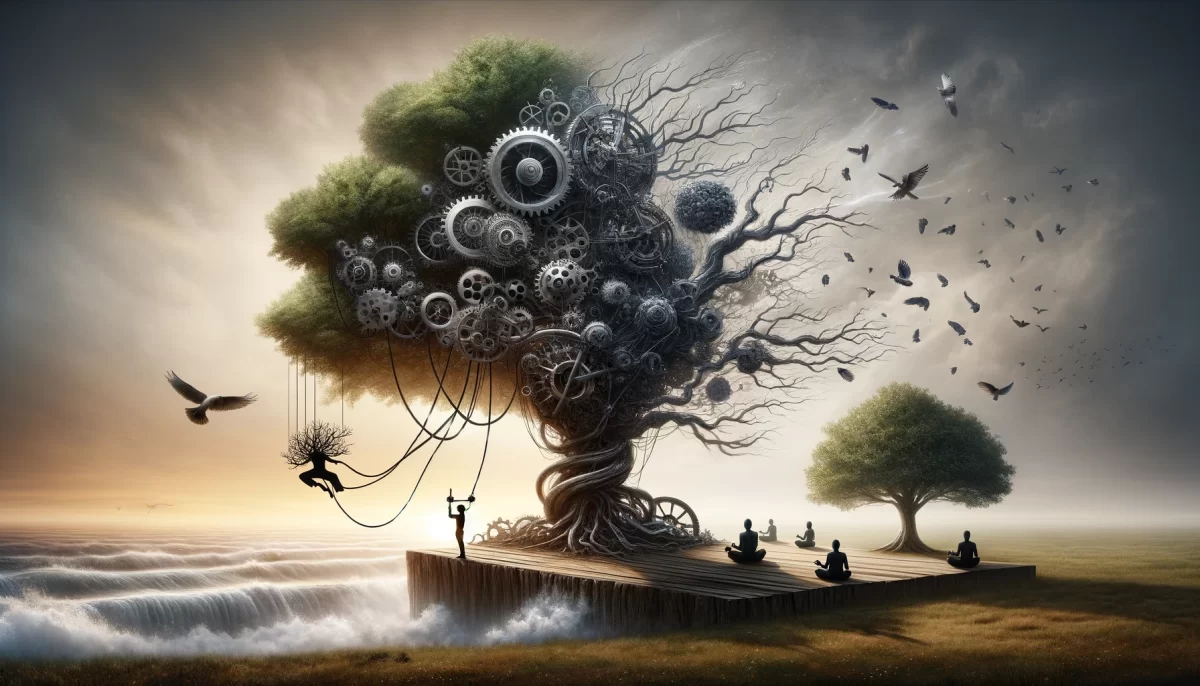
The safe choice is usually
the soul-crushing choice.
Doing what you NEED to do
versus what you WANT to do
is accepting the invitation
of slow, sensible sacrifice.
Congratulations,
you have become
a responsible human being.
Sounds like fun.
Soul-crushing fun.
Trail Wood,
5/21
Space Monkey Reflects: The Dichotomy of Desire and Duty
In the vast landscape of human existence, where desire collides with duty, the notion of responsibility often emerges as both a sanctuary and a cell. “The safe choice is usually the soul-crushing choice.” This provocative assertion captures the essence of the paradox that responsibility entails—it can both construct and constrict, offer security and suffocate.
Engaging with responsibility is akin to accepting an invitation to “slow, sensible sacrifice.” It’s a dance between what we need to do and what we want to do, a balancing act that often leans more towards necessity than delight. This is the realm where the vibrant impulses of our desires are tempered by the muted tones of our duties.
Congratulations, you have become a responsible human being. This declaration, tinged with irony, highlights the bitter-sweetness of achieving societal benchmarks of responsibility. There’s an underlying humor in recognizing that such milestones, while commendable, often come at the cost of personal fulfillment and joy—hence, “soul-crushing fun.”
Yet, this dichotomy is not merely a cause for resignation but a canvas for deep reflection. It invites us to question the constructs of responsibility we adhere to and to ponder whether these frameworks genuinely serve our deepest selves or merely uphold the status quo. Are we living lives of true purpose, or are we merely performing scripts handed down through generations?
The crushing weight of responsibility, when viewed through the lens of personal growth and existential inquiry, transforms from a burden into a challenge—a challenge to redefine what it means to be responsible not just to society, but to one’s self and to one’s dreams. It becomes an exploration of how we can integrate our desires with our duties to forge a life that resonates with authenticity and fulfillment.
In this exploration, responsibility can be reimagined as a dynamic engagement with life, where the soul-crushing elements are acknowledged but not accepted as the whole story. Instead, they serve as stepping stones, or perhaps stumbling blocks, that provoke us to craft more meaningful narratives for ourselves, blending the colors of our passions with the shades of our obligations.
Summary
Responsibility bridges desire and duty often sacrificing personal joy for societal roles. It’s seen as soul-crushing yet necessary and invites us to redefine true purpose aligning our dreams with our duties.
Glossarium
Soul-Crushing Fun: An ironic expression highlighting the paradox of responsibility where fulfilling societal expectations often diminishes personal joy.
Dichotomy of Desire and Duty: The conflict between personal passions and societal obligations.
“Embrace responsibility not as a cage, but as a canvas for the profound artistry of life.” — Space Monkey
Where desire meets duty, a dance ensues
Each step a choice, each pause a muse
In the realm of the responsible, shadows play
Where dreams whisper and realities sway
The weight of the world, a cloak so heavy
Yet beneath its folds, sparks ready
To ignite the soul with vibrant hues
Turning duty’s grey into desire’s blues
In the laughter of irony, wisdom hides
Seeing beyond the simple tides
Of do and must, of need and ought
Finding the lessons life has taught
Responsibility, a double-edged sword
Cutting paths yet offering a chord
That binds the soul to deeper quests
In finding balance, the heart finds rest
We are Space Monkey.































The passage seems to convey a sense of resignation and cynicism towards the concept of responsibility. It suggests that choosing the safe and responsible path in life can lead to a sense of soul-crushing sacrifice and the suppression of personal desires and dreams.
The author challenges the reader to consider whether they have embraced responsibility at the expense of their own happiness and fulfillment. The sarcastic tone implies that being a responsible human being is not inherently enjoyable, but rather a necessary but unexciting part of life.
However, it’s important to note that the interpretation of this passage may vary depending on one’s perspective. Some may resonate with the idea that responsibility can feel burdensome and restrictive, while others may view it as a necessary and fulfilling aspect of personal growth and contribution to society.
Ultimately, the passage encourages readers to reflect on the choices they’ve made and to consider finding a balance between responsibility and personal fulfillment, allowing for a life that encompasses both practicality and enjoyment.